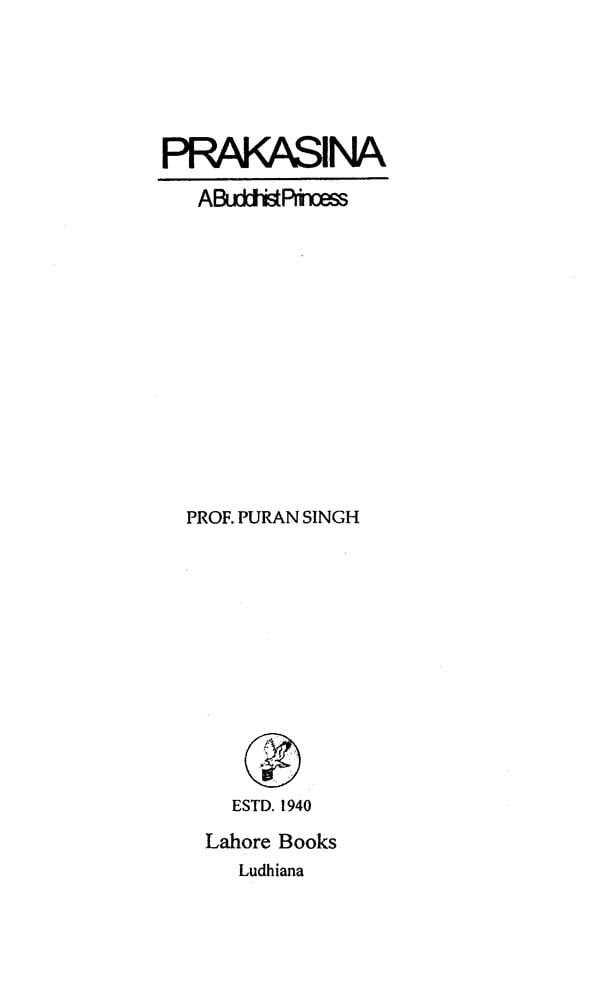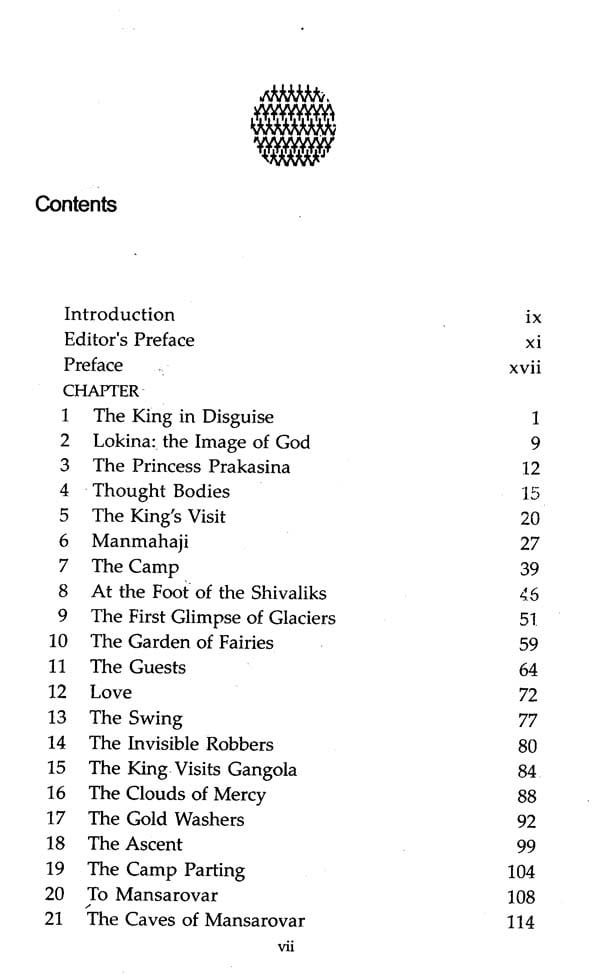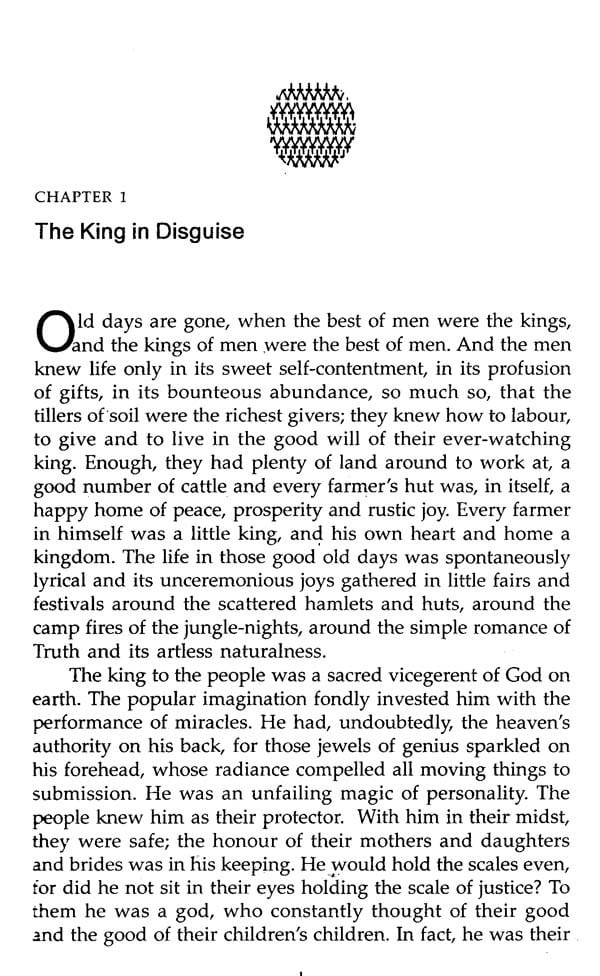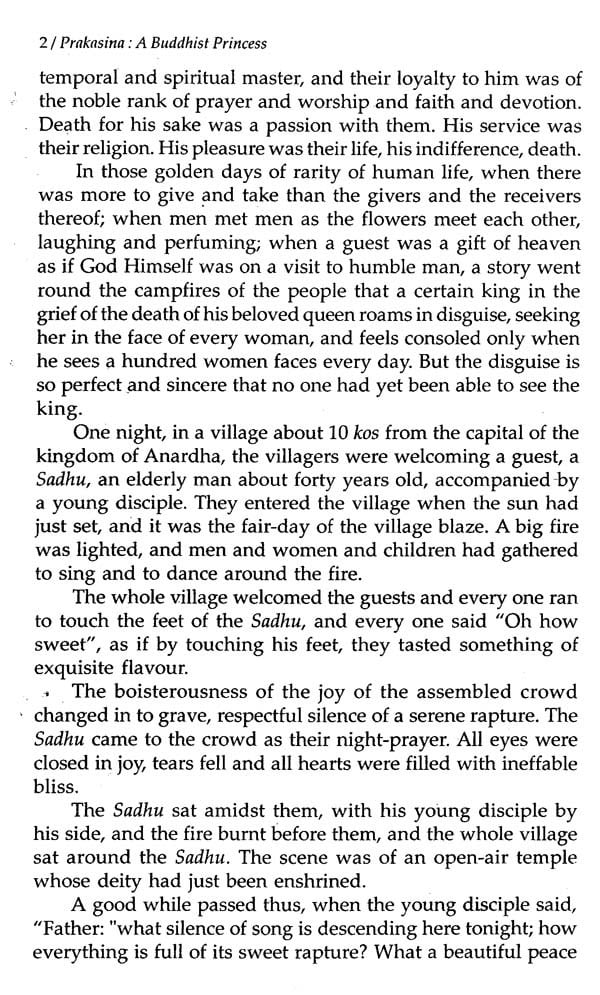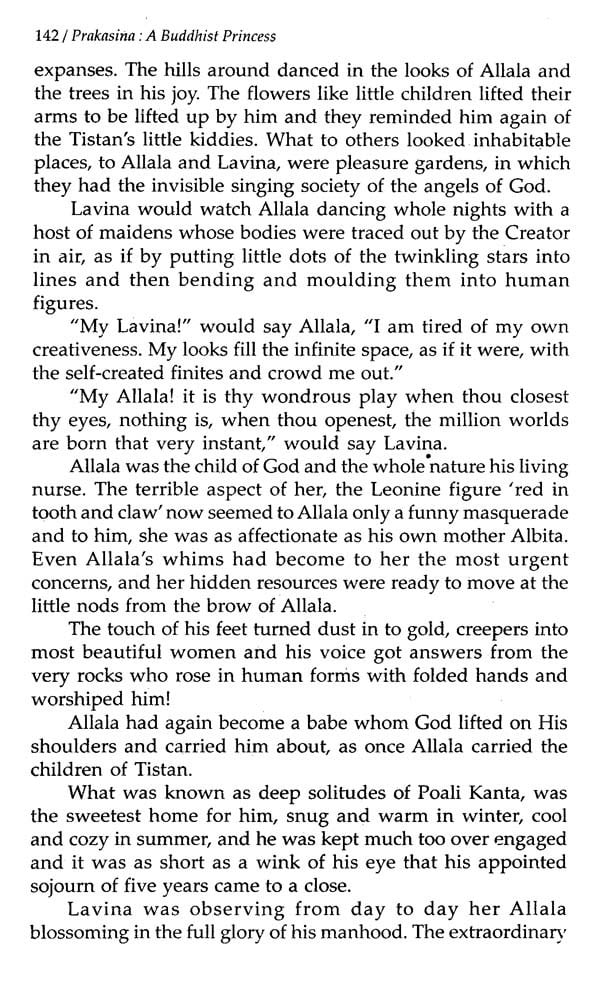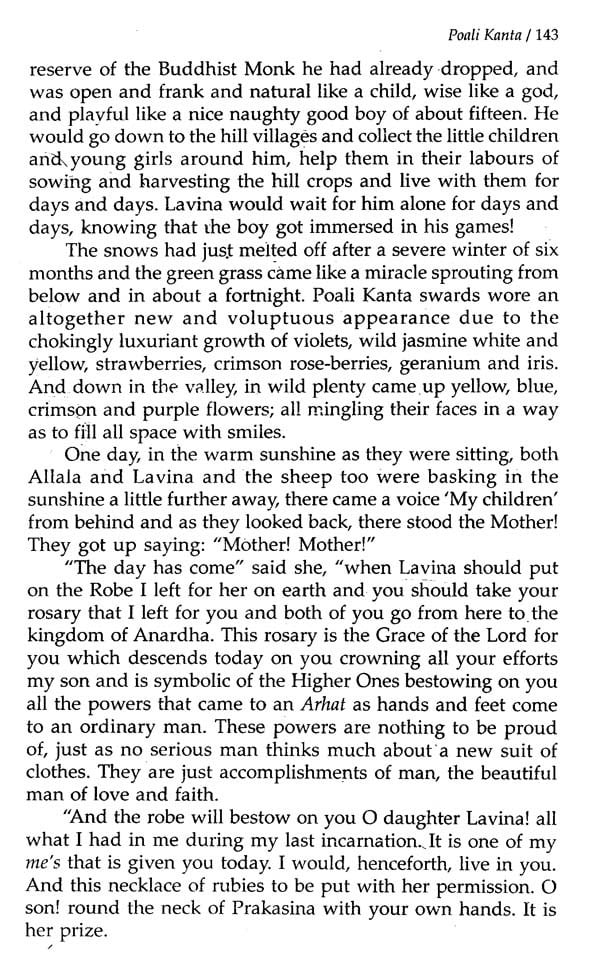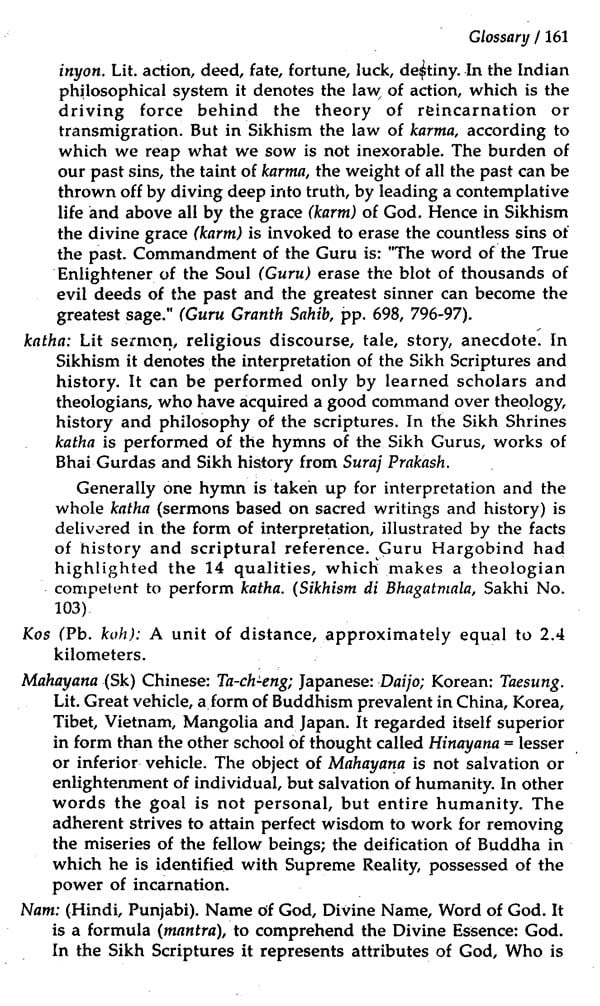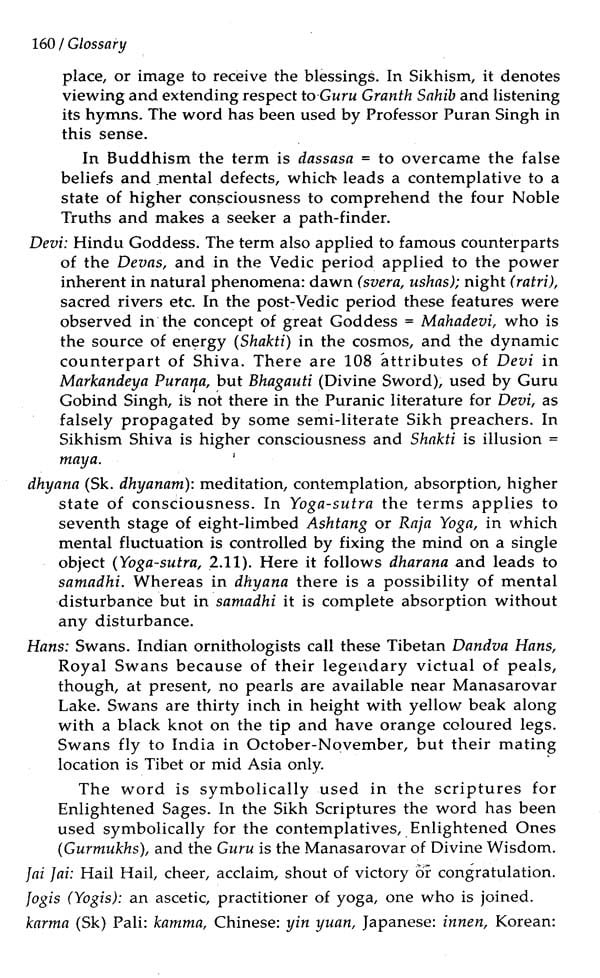
Prakasina: A Buddhist Princess
Book Specification
| Item Code: | AZI106 |
| Author: | Puran Singh |
| Publisher: | LAHORE BOOK SHOP, LUDHIANA |
| Language: | English |
| Edition: | 2020 |
| ISBN: | 9788176473750 |
| Pages: | 183 |
| Cover: | Hardcover |
| Other Details | 8.50x5.50 inches |
| Weight | 327 gm |
Book Description
Ashoka, the great emperor who united India and made the influence of his empire felt from Ceylon to the limits of Syria and Egypt, deliberately recognizing Buddhism as its unifying force, gave the weight of his personal influence to those thinkers who must have been closely allied to the Northern School, though with Asiatic toleration he patronized their opponents also and did not fail to countenance the Brahmanical religion itself. His son Mahindra converted Ceylon to Buddhism, laying the foundations thereof Northern School, which still survived in the seventh century, when Hieun Tsang (Chin) visited India, till the reflux from Siam, a few centuries later, of the Southern doctrine, of which it remains the present stronghold.
Northern India and Kashmir, where immediate disciples preached the faith, formed the busiest seat of Buddhist activity. It was in Kashmir, in the first century after Christ that Kanishka, the great Kushan emperor, who extended his power from Central Asia to the Punjab, and left his foot-prints at Mathura near Agra, - called a great Buddhist council, whose influence spread Buddhism further into Central Asia. But all this was only enforcing the work begun by Ashoka the Great, descendent of Chandra Gupta (4th century BC.)
No definite or indefinite details as to the site and the times of the story narrated in the following pages could have been at all even remotely guessed from the vague rumors in the freed mouths of confused traditions, heard from old men and women to whom the story was subject of a Katha - a recital, a chant with explanatory extempore additions. History does not become ripe in its lesson, till it has forgotten its own time and space, and descends as a song on the tongues of men, or sinks as a beautiful story into the depths of consciousness becoming an organic part of it.
One may, however, guess that, most probably out of the innumerable Buddhist estates and kingdoms there was one small Buddhist kingdom of Anardha, mentioned in our story, historically speaking, perhaps all so insignificant, in that corner of the north-west India which is now known by the name of Pothohar, Dhani and Hazara. There is, no doubt, that this part of the country, at one time, was full of monasteries and stupas and many of these important historical sites of the old Buddhist periods of history were buried here by Time. Texila, the old Buddhist University had sunk in earth, not at very great distance from Anardha, the capital of this kingdom. Occasionally the Chinese and other pilgrims roamed about Anardha to verify some important details of history as recorded by the famous Chinese travellers, the glorious past had left but these last remnants and ruins as pathetic tales of Buddhism in India.
In this small, almost unknown kingdom of Anardha, ruled over by an Arhat, in succession similar to what, at least, in dead form if not in spirit, still exists in Tibet in Lamaism, had gathered most of the holy men and women, driven out of the other parts of the country, persecuted by the satanic followers of the Vedic ritualism. Here did burn quietly for a brief while of about 200 years or so the Great Lamp in its, let us say, last beautiful flicker, centuries before the fresh onslaught of the Moslem iconoclasts of Central Asia.
This Arhat had modified Buddhism somewhat radically and we might say it was a new-Buddhism of his own. Whether the story is true or not, as to the names of persons and places and religions or as to the exact layer of the historical period to which it belongs, this much is vouchsafed. that it does truly record the private life of a great and noble man who once ruled over a kingdom in which he had his immediate religious ancestors had actually realized a Utopia of an ideal political estate; the Buddhism in its peculiar individualistic Anardha-modification had once become both the religion and the politics of the people of that little country.
Like the pages of an old manuscript, in spite of many portions of it being somewhat indistinct and blurred, the story might, even in its narration in English, a language foreign to the author, it is hoped, still scintillate with the light that the author as a boy, beheld on the faces of men and women figuring in the story, as it was being word - painted before his eyes by the great story tellers, the grand old men who have become well nigh extinct due to the general drive of the old by the new types of men.
The self-realized, enlightened simplicity of human life in its own perfect health, sympathy, labour and love is, after all, the highest religion that the kings of Anardha taught their 'people and wrought it in, into the consciousness of the people by their occult genius of the supernatural vision.
